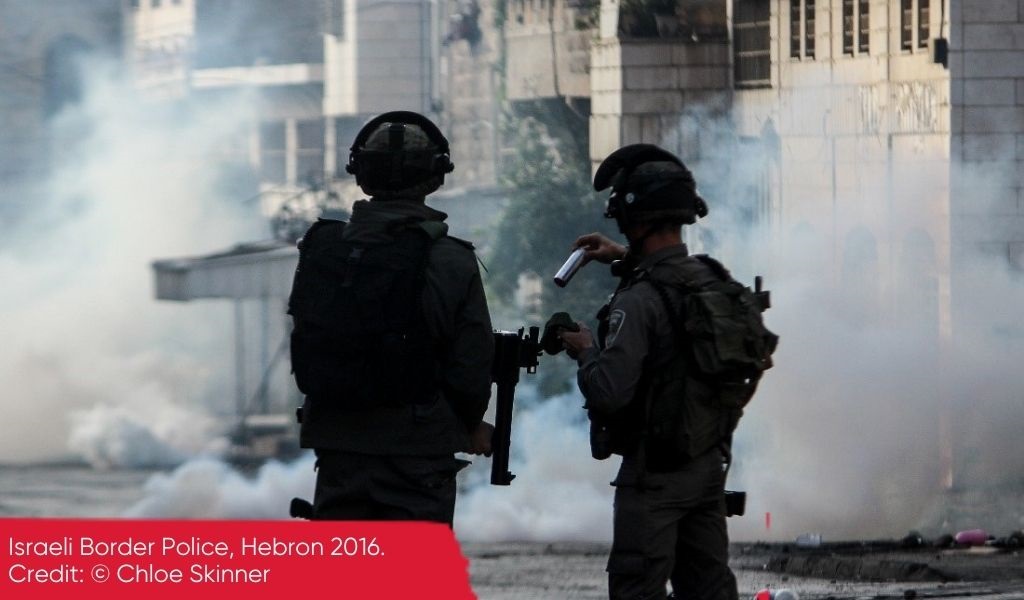May 15 is a date etched onto the Palestinian psyche. It marks the commemoration of the ‘Nakba’ – the ‘catastrophe’ of 1948 – during which over 700,000 Palestinians were forcibly displaced, and over 500 Palestinian villages were destroyed amidst the violent establishment of the Israeli state.
Over 73 years on, and reports are emerging of Palestinian families exchanging children in the besieged Gaza Strip to prevent the massacre of entire families. Over 200 Palestinians have now been killed in Gaza by Israeli airstrikes in 8 days, including 63 children. 1,400 have been injured and 72,000 displaced at the time of writing – while nearly half a million are being denied vital humanitarian support. Ten Israelis, including two children, have also been killed amidst the exchange of fire between Hamas and the Israeli military. Tensions have heightened following the expulsion of six Palestinian families long resident in the Sheikh Jarrah neighbourhood of East Jerusalem – to make way for strongly ideological Zionist settlers.
On May 15th, 2021, Israeli airstrikes killed eight children and two women from the same family, according to reports, as they gathered to celebrate Eid al-Fitr at a home on the edge of al-Shati refugee camp. A 15-story block in Gaza that houses the offices of multiple media organisations, internet providers and civilian residences was destroyed in another strike on the same day. The next day, roads surrounding Gaza’s largest hospital were also decimated, and health officials reported the killing of 42 Palestinians in the ongoing assault, including Dr Ayman Abu al-Ouf – the head of Coronavirus Response at al-Shifa hospital – and Dr Moein Ahmad al-Aloul – one of Gaza’s few neurologists, who died alongside his five children.
A “structure, not an event”
As Palestinian feminists Nadera Shalhoub-Kevorkian, Sarah Ihmoud and Suhad Dahir-Nashif note, quoting Patrick Wolfe, settler colonialism is a “structure, not an event”, and “operates through a logic of elimination that seeks to erase indigenous presence on a specific territory.” The containment and ultimate elimination of Palestinian presence has long been central to the Zionist endeavour, realised through a range of means and mechanisms – from ethno–nationalist land legal systems tantamount to apartheid, the ever-tightening stranglehold of military occupation, to ariel bombardments that maim and murder.

As a human rights activist living in Palestine during the escalated violence of 2015, I witnessed the palpable atmosphere of hatred and death that lingered throughout the series of public lynchings and extrajudicial executions of that time. As I read the news, I am viscerally reminded of the celebrations that I witnessed next to the body of Fadil Qawasmi, an 18-year-old Palestinian that had been shot dead by a Zionist settler on the streets of Hebron on October 17th, 2015 – the first of three Palestinian teenagers killed by Israeli forces or settlers in Hebron on the same day.
And yet, while the onslaughts of tear gas, stun grenades, rubber bullets and skunk water fired by Israeli forces at Palestinians protesting – or merely walking to school in Hebron – heightened, both then and now, this was simply an intensification of the normative practices of military occupation. Ever adrenally exhausting, choking clouds of teargas are far from uncommon in occupied Palestine, where the right to breathe has been continuously eroded since 1948.
“This is our daily bread”
In an ongoing war of attrition, the indigenous Palestinian population – whether in the besieged Gaza strip, the militarily occupied West Bank, within Israel or beyond – have faced their ongoing Nakba for 73 years. As Leila, a Palestinian woman from a refugee camp explained to me during a research visit, “we Palestinians are violated in every, every, every, every part of our lives”, while Omar, a Palestinian man from the Jerusalem neighbourhood of Silwan told me, “We are living and breathing this occupation…this is our daily bread.”
The current spike in violence, therefore, is a continuation – not an aberration – to the ongoing displacement, dispossession and destruction faced by Palestinians at the hands of the Israeli state. This continual violence has been bolstered and supported by Israel’s political, military, and symbolic ties with powerful state actors – such as the U.S. On May 5th U.S. President Joe Biden approved the sale of $753 million dollars’ worth of arms to the Israeli state; U.S. Reps Alexandria Ocasio-Cortez, Rashida Tliab and Marc Polan have issued a resolution opposing the sale, amid growing demands that the President pressurise Israeli Prime Minister Benjamin Netanyahu into issuing a ceasefire, and to end the forced removal of Palestinian families from their homes in Jerusalem.
Resistance: A constant state of being
15th May 2021, did not only signal the ongoing death and dispossession of Palestinians, but it also marked the day when hundreds of thousands took to the streets worldwide to protest the ongoing Nakba. Among others, Jews and Palestinians alike protested the systematic horrors of settler colonial violence, and killing of innocent civilians, calling for justice as a prerequisite for peace.
As the Nakba continues, “the sound of resistance grows louder and stronger within each of us”, writes Dima Srouji, a Palestinian architect and artist who says that, for Palestinian’s, “resistance is not a fight against a singular event, it is a constant state of being.” She continues, “the violence across Palestine today may be resurfacing our collective trauma, but it is also making our story stronger”. It is only through amplifying this story, and amplifying the voices of Palestinians, that we can seek to collectively create change.
It is only by naming the current spate of intensified violence for what it is – the ongoing colonial violence of one of the most militarily powerful states in the world – that we can begin to imagine that the relentless story of oppression, displacement, and death can one day enter a new chapter of justice, equality, and peace.